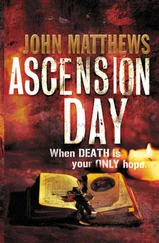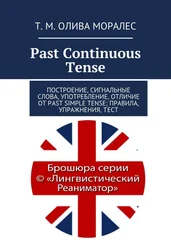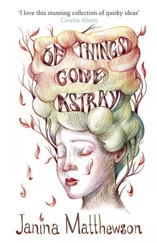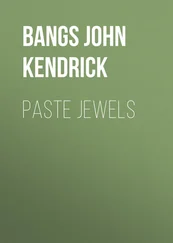John Matthews - Past Imperfect
Здесь есть возможность читать онлайн «John Matthews - Past Imperfect» весь текст электронной книги совершенно бесплатно (целиком полную версию без сокращений). В некоторых случаях можно слушать аудио, скачать через торрент в формате fb2 и присутствует краткое содержание. Жанр: Триллер, на английском языке. Описание произведения, (предисловие) а так же отзывы посетителей доступны на портале библиотеки ЛибКат.
- Название:Past Imperfect
- Автор:
- Жанр:
- Год:неизвестен
- ISBN:нет данных
- Рейтинг книги:4 / 5. Голосов: 1
-
Избранное:Добавить в избранное
- Отзывы:
-
Ваша оценка:
- 80
- 1
- 2
- 3
- 4
- 5
Past Imperfect: краткое содержание, описание и аннотация
Предлагаем к чтению аннотацию, описание, краткое содержание или предисловие (зависит от того, что написал сам автор книги «Past Imperfect»). Если вы не нашли необходимую информацию о книге — напишите в комментариях, мы постараемся отыскать её.
Past Imperfect — читать онлайн бесплатно полную книгу (весь текст) целиком
Ниже представлен текст книги, разбитый по страницам. Система сохранения места последней прочитанной страницы, позволяет с удобством читать онлайн бесплатно книгу «Past Imperfect», без необходимости каждый раз заново искать на чём Вы остановились. Поставьте закладку, и сможете в любой момент перейти на страницу, на которой закончили чтение.
Интервал:
Закладка:
'It was a coin… a lucky coin.'
'And were you holding the coin when you thought about Grandpapa Andre?'
'Yes… I was gripping it tight in my hand before I fell asleep. And then I realized suddenly when I awoke that it had dropped from my hand.'
'Where were you when it dropped?'
'In the boot of the man's car.'
'And were you able to find the coin?'
'No, it was dark… I felt around. But there was only the spare wheel… I couldn't feel it on the wheel or around the sides. I was still feeling for it when the boot opened… the light stung my eyes.'
'And when you realized you'd dropped the coin — did it make you fear that something bad might happen?'
'Yes… yes. In the darkness, it helped me. It was something I knew, a reminder of home. But then when it had gone…'
As Marinella returned to attachment and loss, Dominic touched her arm lightly, silently nodded his excuse, and left the room. Nothing else of interest was likely to come up and he couldn't bear waiting the ten minutes remaining to know. He went through Lambourne's reception and out into the street, dialling out on his mobile to Monique in Lyon.
On the third ring it answered, and he cut quickly through the preambles. 'A coin. A lucky coin that Christian's grandfather gave him. Do you remember it?'
'Yes… I do.' Hesitance; flustered by the sudden jump to a memory from thirty years ago. 'But why?'
'It's important. Something's come out of the sessions in London. I'll tell you later.' Sudden chill as he realized he wouldn't be able to delay any longer; that night he would have to tell her everything: his buried doubts, the car sighting, Machanaud, Jean-Luc's wasted suicide. 'What sort of coin was it?'
'An Italian twenty lire, silver. 1928.'
'Was it rare?'
'Fairly. Jean-Luc's father had brought it back from Italy years before. He gave it to Christian on his eighth birthday.'
Dominic was silent, thoughtful: if Duclos had seen the coin, he'd have thrown it away straightaway. But Christian hadn't been able to feel for it: what if it had dropped behind the spare wheel or some tools out of sight? A chance. Just a chance.
He confirmed that Monique hadn't found it later among any of Christian's things. 'With all the confusion — with the investigation and Christian in the hospital — it got forgotten. I didn't notice it was missing till months later. But it's obviously important now… very important. Why?'
And again he assured her that he'd tell her that night, diverted quickly to pleasantries before signing off. A generation of hiding the truth from his wife and still he was playing for time.
Lucky coin? Dominic reflected ruefully. The only luck might be, thirty-two years later, it finally bringing some justice and vindication for Christian Rosselot.
THIRTY-FIVE
Limoges, June, 1985
A miracle. Duclos looked at the pathetic figure of his new born son through two layers of glass: the first separating the observation room from intensive care, the second the glass of the incubator. Scrawny, hardly an adult's forearm in length and purplish blue — all that was keeping him alive was the oxygenated, sanitized air of the incubator and the mass of pipes feeding and monitoring.
A miracle that would probably only last a few hours, according to the doctors. His son would be lucky to make it through the night. Those few hours strongly etched in his memory: a glass case. How he would forever remember his son, timelessly preserved in a glass cabinet; a freak of nature, an exhibit.
Betina still hadn't come round from the anaesthetic. The only option left to save her and the baby had been caesarean inter-section. Horrifically rushed, the anaesthetist had hardly finished his countdown and response tests before the surgeon made his incision. Some monitors were still being attached as he cut.
Betina had begged and pleaded for her baby's life as they'd wheeled her frantically on a gurney towards the operating theatre. The attending emergency medic had gripped her hand and assured, 'Don't worry, you'll be okay.'
But entering surgery, the graver atmosphere and more concerned expressions made her panic that everything might not be okay. 'If there's a choice, save my baby first. Put his life before mine.'
'We try our best not to make choices,' the surgeon commented. '…Unless God forces our hand.'
Betina was still struggling with the significance of this, was about to press the surgeon for a clearer assurance when the anaesthetic bit.
She probably wouldn't awake for two or three hours yet, Duclos reflected. What was he going to tell her? 'He's alive, but he'll be dead soon. Doctors did their best. Shame.'
Or perhaps he would spend an hour's more bedside vigil with his son, then sneak away on the promise of returning a couple of hours later, but get delayed. Leave it to the doctors to tell Betina. Avoid the drama of seeing her in tears, in the same way he had avoided every other drama and confrontation with Betina through the years. Besides, they were more expert than him, were used to choosing the rights words in this sort of situation every day. He'd be hopeless. Worse still, if the boy died before Betina awoke, it was best if he wasn't there; he couldn't possibly face her given that circumstance. At least with a few hours of life remaining, she'd cling to some hope, some solace.
They'd even talked about a name: Joel. 'Hello Joel,' he murmured, and saw his breath mist the glass as he pressed his face closer. The frail figure, so pathetic and defenceless with all the tubes and monitors attached — reminded him in that moment of Christian Rosselot in the hospital… of him reaching out to stifle the last life from the boy. He shivered involuntarily. Had he really been so desperate? How could anyone… anyone? And in that moment, as his eyes welled uncontrollably, a tear trickling down, it hit him that it might just as well be his hand reaching across and stifling Joel. Realization that his turning the wheel at the last moment hadn't just been instinctive self-preservation; in part he'd responded to some dark inner fear, however irrational, of future complications he wouldn't be able to face.
Was that why he was crying now, he thought. Tears of remorse, the first he could remember, flowing freely because the sight of his son, an actual life rather than a shadow of shapes on a scan from his wife's womb — had reached out and gripped him hard. Or was it because he knew now with certainty that his son would die as he was now, would never grow beyond the pathetic, shrivelled form before him. The tears could be safely shed; all worries, whether real or ridiculously imagined in his own mind, were over.
It hardly mattered now. When all that remained was a few hours of life preserved in a glass case, what else was there but pity, sorrow? He was a politician. He knew the right emotion for every occasion.
Between his other work, Dominic's occasional glances towards the phone the past hour had become increasingly anxious. After his initial call to Lepoille, they'd spoken again an hour later, then nothing since. Almost half the day had gone now for Lepoille to find something. What had happened?
Seven months? Duclos had obviously been keen to dispose of the car. Unpleasant memories. The papers were strewn across his desk: faxed pages from an Alfa Romeo owners club in Paris: User's manual. Alfa Romeo Giulietta Sprint, 1961 . Car registration for the next owner after Duclos: Maurice Caugine , an address in St Junien, thirty kilometres from Limoges.
Details of the car boot and position of the spare wheel and tool kit were on the seventh page faxed through. The spare wheel had eight oval holes around its perimeter, each one double the length of a large coin. Easily large enough for the 20 lire coin to have fallen through. He'd gained a photocopied picture and details of the coin from a collector's catalogue: Italian 20 lire. 1928. Silver. 15g. Emanuele III on head, Lictor hailing Roma on reverse. Edition minted between 1927 and 1934.
Читать дальшеИнтервал:
Закладка:
Похожие книги на «Past Imperfect»
Представляем Вашему вниманию похожие книги на «Past Imperfect» списком для выбора. Мы отобрали схожую по названию и смыслу литературу в надежде предоставить читателям больше вариантов отыскать новые, интересные, ещё непрочитанные произведения.
Обсуждение, отзывы о книге «Past Imperfect» и просто собственные мнения читателей. Оставьте ваши комментарии, напишите, что Вы думаете о произведении, его смысле или главных героях. Укажите что конкретно понравилось, а что нет, и почему Вы так считаете.












